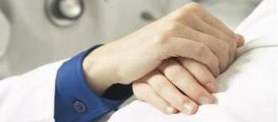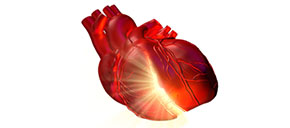Pre- and Post-Device Implantation Care
Pre-Procedure
- Please arrive at the hospital “fasting” (nothing to eat) from the previous midnight
- You may take your morning medications with a small sip of water
- If you have been instructed to have blood drawn, please do not forget (you may be instructed to have this done several days before your procedure)
- Please make sure you have consulted with your physician if you are on coumadin or insulinfor diabetes. For most procedures, your coumadin will be discontinued or adjusted several days prior.
- If you have not received a phone call from the hospital or our office by the day before the procedure to let you know what time to arrive, please call us.
- Please arrange to have someone drive you to the hospital and home after the procedure as driving is typically limited for at least 1 week after device implantation
- If you develop a cold or are sick, please consult your physician immediately as we may need to postpone your procedure.
The Day of the Procedure
- Please arrive at the prespecified time to allow adequate time for hospital registration and check-in; please call if you will be late.
- Please bring any additional documents your physician has requested.
- Reconfirm with your physician regarding your specific instructions with coumadin and insulin if you have diabetes.
- Please do not wear contact glasses
- If you can avoid, please do not wear or bring jewelry, watches, or money the day of your procedure
- Feel free to bring your own toothbrush, bathrobe, hairbrush, and accessories for your overnight hospital stay
- Your physician will discuss the procedure again with you that morning. Please bring a list of questions if you have any after your office discussion. You will also be asked to sign an informed consent that morning.
- After the procedure, you will have an arm sling for typically 24 hours.
- Expect an overnight hospital stay, with a morning exam to ensure the device and incision site are appropriate.
- Please arrange to have someone drive you to the hospital and home after the procedure as driving is typically limited for at least 1 week after device implantation
Discharge instructions and care
- Your heart rhythm specialist will discuss specific individualized recommendations on your discharge care. The following are general recommendations:
- Once daily dry dressing changes to the incision site. Wash your hands, take off the old dressing, and then cover the incision with a new folded 4X4 gauze and paper-tape. If you have steri-strips, please do not remove them. These steri-strips will be removed at your post-device 1 week followup wound check appointment.
- You may be asked to keep the incision site dry for the week following implantation (you may shower, but need to keep the affected site dry).
- Typically driving is discouraged for at least 1 week or longer after the device is implanted
- Limit heavy lifting with the involved arm for at least 4 weeks
- Extreme motion with the involved arm (above the shoulder) should be avoided for 4-6 weeks after device implantation (this includes activities such as swimming and golf); this could result in lead dislodgement.
- You will need to return to the clinic in 1 week after device implantation to check the healing of the incision site.
- You can return to normal activities within several days
- Speak to your physician regarding your medications after device implantation, including when to resume coumadin.
- Expect 3-5 days of outpatient oral antibiotics after device implantation
Long-term follow-up
- You will need a wound check in 1 week after implantation
- Clinic device and wound surveillance check approximately 6 weeks after implantation
- You will need routine “device clinic” checks with your physician: typically every 4-6 months for a pacemaker system, and every 3-4 months for an ICD. This takes approximately 20 minutes, with the programmer “wand” placed on your chest over your device. A noninvasive review of your device parameters, function, and cardiac events will be printed and kept with your records.
- Always carry your device identification card. You will be given a temporary card on discharge from the hospital, with mailing of the permanent within 6-8 weeks thereafter.
- An intensified monitoring period will be instituted as battery depletion is detected. This is determined during your routine device checks as residual battery level can be projected. “Device clinic” checks will change to every 2-3 months or less thereafter.
- Replacement of the pacemaker or ICD generator is performed during the “elective replacement interval” determined by the device’s battery life. Expect a 5 to 8 year average generator life for a pacemaker and a 3 to 6 year life-span for a defibrillator system.
Please call the physician or seek care if:
- Your bandage at the catheter site has become soaked with blood
- Any evidence of frank pus from the incision site
- Any increased swelling or pain since hospital discharge
- Any red or hot area around your incision site
- If you have a temperature >38.0 C
- If you have any chest pain, shortness of breath, or significant change in your vision. These may be signs of an emergency – call 911.
Misconceptions
- Your device has built-in features to protect it from the electrical interference produced by most household electrical appliances. Generally microwave ovens, computers, VCRs, and garage door openers are all safe to use.
- Airport walk-through metal detectors are safe, but you may set the alarm off. Always have your device identification card on hand, and have them perform a hand search instead.
Precautions
- Be wary of contact sports
- Avoid placing your cellular phone directly over your device generator. Try to keep it at least 6 inches away from your device. Do not carry your cellular phone in your shirt pocket when not in use.
- Magnetic resonance imaging (MRI) scans should be avoided unless your physician deems otherwise
- Avoid prolonged exposure in the vicinity to electronic security systems (anti-theft devices), including metal-detector “wands” and those located at the entrance of department stores.
- Your device is sensitive to strong electromagnetic interference (EMI) generated by certain electric or magnetic fields of sufficient strength. Hence, avoid working near heavy or high-voltage machinery (running motors and alternators), exposure to arc-welding equipment, CB radio antennas, and MRI scans.
Device Company Manufacturers
Medtronic: 800-551-5544
Boston Scientific: 800-227-3422
St. Jude Medical: 800-777-2237/800-733-3455
Biotronik: 800-547-0394/503-635-3594
PDF download of these instructions
Please consult your physician for any individual changes or additions.





 Silver Spring Office
Silver Spring Office  DC Office (at Providence Hospital)
DC Office (at Providence Hospital)  Hagerstown Office
Hagerstown Office